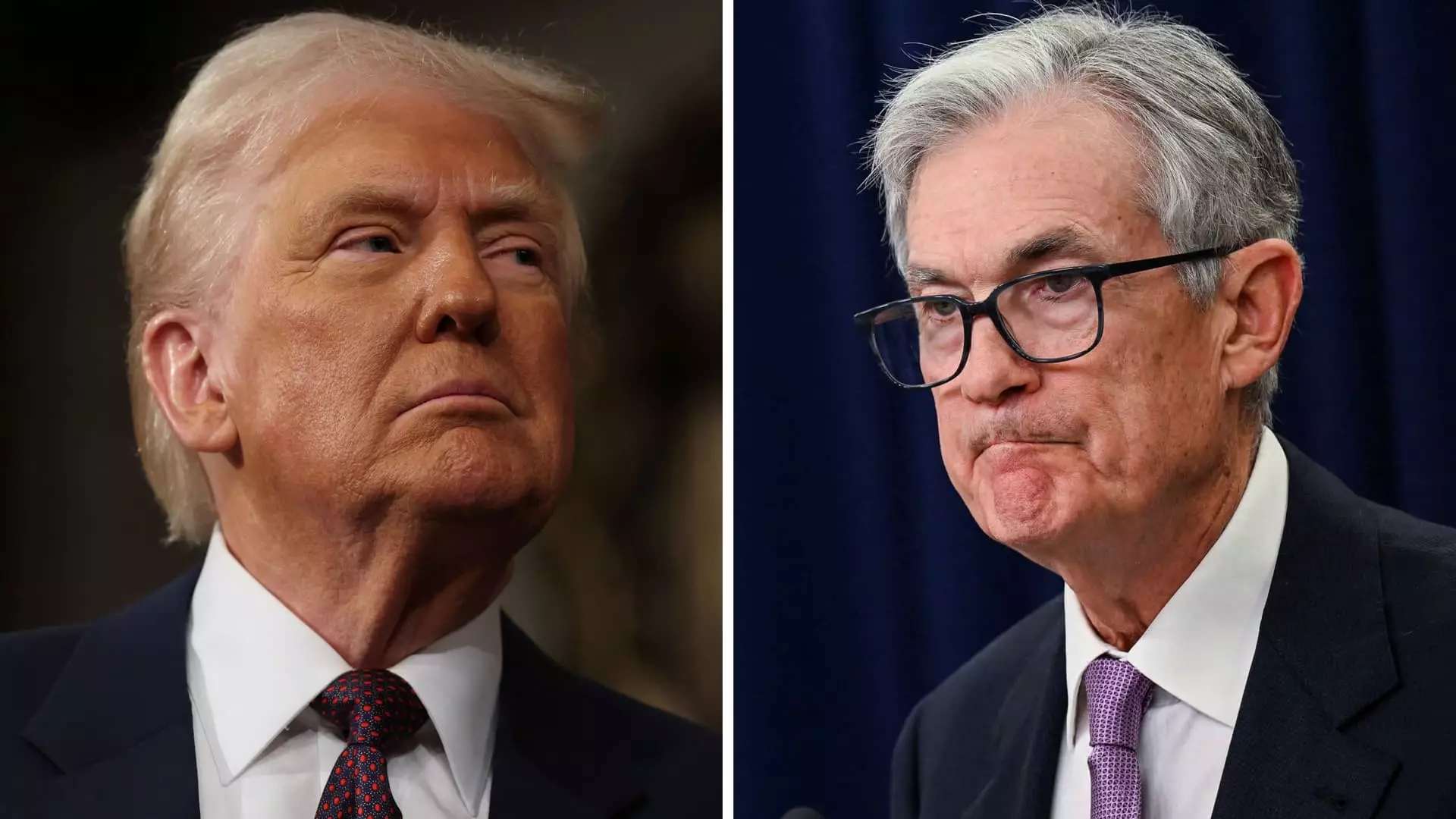In a revealing moment of political theatrics, President Donald Trump recently escalated his public denunciation of Federal Reserve Chairman Jerome Powell, blaming the central bank for unfavorable economic conditions. This situation is more than mere political posturing; it reflects a dangerous trend wherein the executive branch seeks to exert undue influence over independent institutions, especially those that govern critical economic policies. The president’s frustration boils down to a fundamental misunderstanding of how monetary policy operates, and the implications of his demands could have far-reaching consequences.
Trump’s assertion that interest rates should be lowered swiftly if Powell were competent underscores a simplistic view that fails to grasp economic complexities. Yes, prices fluctuate, and the economic landscape can change drastically based on various factors, but setting interest rates is not akin to turning a dial on a sound system. The Federal Reserve operates under guidelines designed to balance growth, inflation, and employment. Yet, Trump’s impatience has led him to equate immediate interest rate cuts with instant economic relief. Such a strategy could endanger long-term recovery by contributing to inflationary pressures that would only serve to undermine the economy he claims to champion.
Political Games in a Fragile Economy
The emerging narrative from the White House suggests a climate of increasing antagonism toward Powell, even hinting at his potential dismissal. Economic advisor Kevin Hassett’s acknowledgment that the administration might analyze methods for Powell’s removal indicates a significant shift in the relationship between the president and the Fed—a relationship traditionally grounded in the independence of monetary policy. This kind of hostility is not merely unwarranted; it carries the risk of destabilizing public trust in the Fed, which is crucial for the economic framework of the United States.
Moreover, Trump’s choice of language—characterizing Powell’s tenure as “Too Late” and calling for his “termination”—raises alarms about the broader implications for market stability. If something as fundamental as the position of the Fed Chair can be subjected to arbitrary political whims, it sets a dangerous precedent that could give rise to unpredictability in financial markets. As Senator Elizabeth Warren pointed out, the very notion of a president firing the Fed Chair is a recipe for financial disaster. It sends a message to investors that political motives can directly influence monetary policy, undermining an essential pillar of economic stability.
The Dual Mandate Dilemma
The critical role of the Federal Reserve goes beyond merely setting interest rates. It bears the heavy responsibility of navigating the dual mandate of maximizing employment while ensuring price stability. Powell’s remarks acknowledge the delicate balance required to fulfill these goals, particularly in a volatile global economic environment marked by tariffs and trade uncertainties—a situation largely exacerbated by Trump’s own policies. Tariffs do not exist in a vacuum, and Powell’s assertion that they might introduce tension between employment rates and inflation targets deserves earnest consideration.
The reality is that the Fed must operate with a long-term view that often conflicts with the immediacy of political pressures. Trump’s disdain for Powell heightened after the Fed Chair suggested that the president’s aggressive tariff strategies could further complicate the central bank’s objectives. The Fed cannot simply bow to the political winds; it must base its policies on economic data and forecasts. Trump’s dismissive remarks trivialize the complexity of the work being done at the Fed, exposing a profound misunderstanding of the economic machinery he seeks to manipulate.
Fostering Economic Resilience, Not Instability
Economic policymaking benefits from a certain level of insulation from political influence—a principle that the Federal Reserve embodies by design. The institution’s credibility hinges on its perceived independence, which in turn fosters a stable financial environment necessary for sustainable growth. Trump’s calls for drastic actions against Powell undermine this credibility and are reflective of a broader problem: a president prioritizing short-term political gains over the long-term health of the economy.
It is crucial for the nation’s economic wellbeing that political leaders recognize the importance of keeping the Fed insulated from partisan disputes. The stakes are high, as economic stability is the bedrock of prosperity for all citizens. A failure to uphold this independence would not only put markets at risk but also threaten the economic livelihoods of millions who depend on a stable environment to secure their futures. Rather than engaging in reckless sabre-rattling, the administration should prioritize constructive dialogue with the Fed to foster an economy that can withstand fluctuations and uncertainties, paving the path for genuine, sustainable recovery.


Leave a Reply